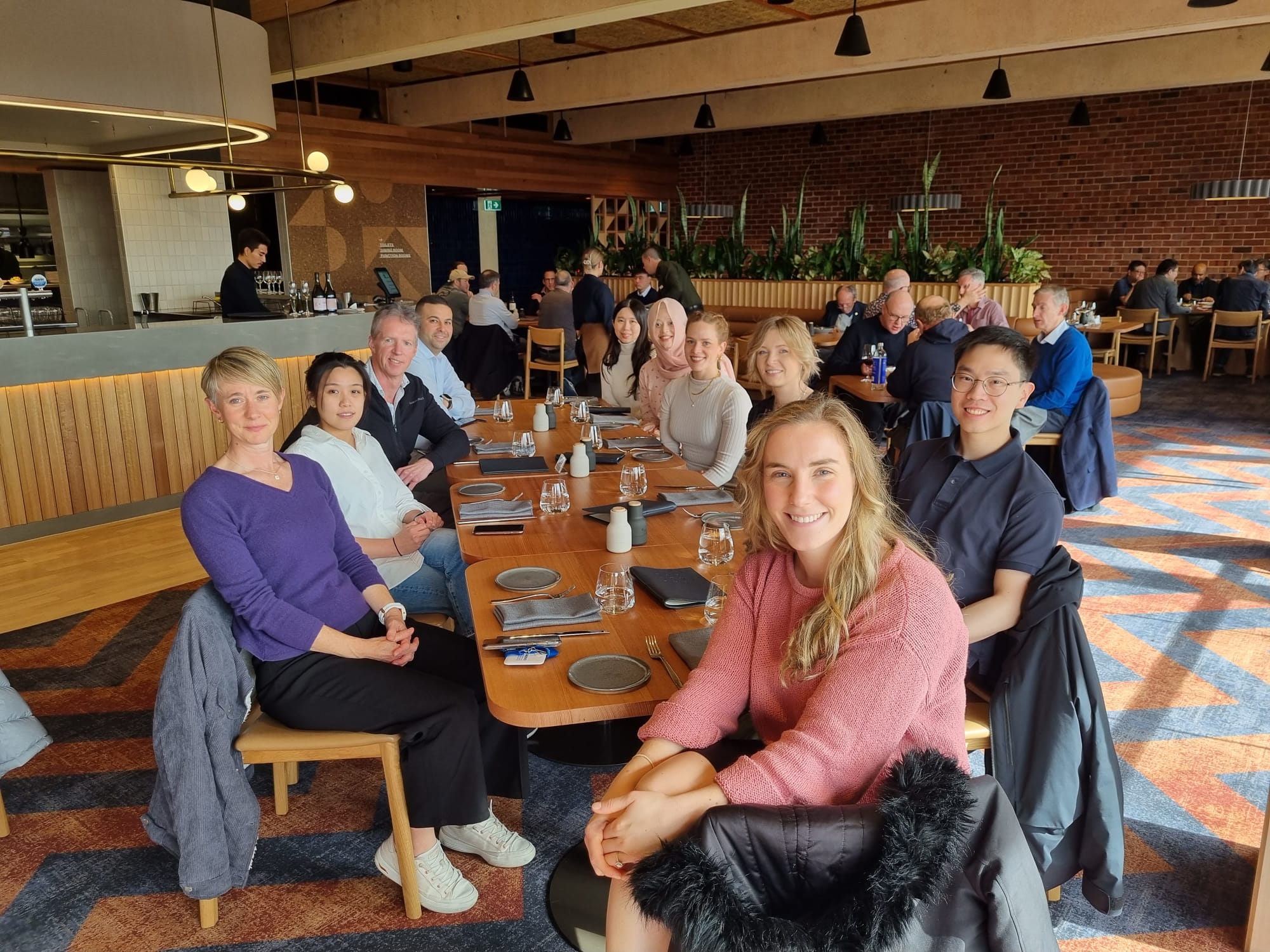Dr Yu Chinn Joshua Chey
Grant-Funded Researcher (A)
SAIGENCI
College of Health
Eligible to supervise Masters and PhD (as Co-Supervisor) - email supervisor to discuss availability.
Josh is a postdoctoral researcher in the Jenkins Cancer and Immune Signalling Laboratory at the South Australian immunoGENomics Cancer Institute (SAiGENCI). His research focuses on the role of innate immunity in pancreatic cancer to advance understanding of disease biology and to support the development of innovative therapeutics.
Innate Immune Regulators in Pancreatic Cancer
Research projects available:
Pattern recognition receptors (PRRs) are key molecules of the innate immune system that recognise microbial- and/or host-derived products to trigger the inflammatory response. We aim to understand the molecular basis by which specific PRRs promote pancreatic cancer, one of the most lethal and aggressive cancers in the world that is strongly linked with a dysregulated immune response.
This project employs preclinical disease models, as well as translational studies using our large collection of biobanked pancreatic cancer patient samples. Such research will ultimately assist in identifying genes for potential use as biomarkers for targeted therapy.
For more information about this project, visit the SAiGENCI website and contact: Prof. Brendan Jenkins.

| Date | Position | Institution name |
|---|---|---|
| 2024 - ongoing | Postdoctoral Researcher | SAiGENCI |
| 2024 - 2024 | Research Officer | University of Adelaide |
| Date | Type | Title | Institution Name | Country | Amount |
|---|---|---|---|---|---|
| 2020 | Scholarship | Adelaide Graduate Research Scholarship | The University of Adelaide | Australia | - |
| 2018 | Award | Most Outstanding Student Poster: Runner Up | Australia and New Zeland Society for Cell and Developmental Biology Inc. | Australia | - |
| 2017 | Scholarship | Master of Philosophy International Scholarship 2017 | The University of Adelaide | Australia | - |
| 2017 | Award | The RA Fisher Prize for Genetics II 2016 | The University of Adelaide | Australia | - |
| 2015 | Scholarship | Adelaide Summer Research Scholarship 2015 | The University of Adelaide | Australia | - |
| 2014 | Award | Outstanding Academic Achievement Award 2014, 2015, 2016, 2017 | The University of Adelaide | Australia | - |
| Language | Competency |
|---|---|
| English | Can read, write, speak, understand spoken and peer review |
| Malay | Can read, write, speak and understand spoken |
| Date | Institution name | Country | Title |
|---|---|---|---|
| 2024 | University of Adelaide | Australia | Doctor of Philosophy |
| 2020 | University of Adelaide, Adelaide | Australia | Master of Philosophy |
| 2017 | University of Adelaide, Adelaide | Australia | Bachelor of Science (Biomedical Science) |
| Year | Citation |
|---|---|
| 2024 | Chey, Y. C. J. (2024). Development of CRISPR Therapies Targeting DMD Exon 51 for Duchenne Muscular Dystrophy. (PhD Thesis). |
| 2019 | Chey, Y. C. J. (2019). Generation and Transcriptomic Analysis of HIF-1Alpha and HIF-2Alpha Knockout 5TGM1 Multiple Myeloma Cells. (Master's Thesis). |
| Year | Citation |
|---|---|
| 2024 | Chey, Y., Corbett, M., Arudkumar, J., Piltz, S., Thomas, P., & Adikusuma, F. (2024). Megabase-Scale Transgene De-Duplication to Generate a Functional Single-Copy Full-Length Human DMD Transgenic Mouse Model. DOI |
| 2024 | Chey, Y., Gierus, L., Lushington, C., Arudkumar, J., Geiger, A., Staker, L., . . . Adikusuma, F. (2024). Enhancing gRNA Transcript levels by Reducing the Scaffold Poly-T Tract for Optimal SpCas9- and SaCas9-mediated Gene Editing. DOI |
| 2024 | Arudkumar, J., Chey, Y. C. J., Piltz, S. G., Thomas, P. Q., & Adikusuma, F. (2024). Generation and characterisation of mouse models of Duchenne Muscular Dystrophy (DMD). DOI |
| 2021 | Adikusuma, F., Lushington, C., Arudkumar, J., Godahewa, G., Chey, Y. C. J., Gierus, L., . . . Thomas, P. (2021). Optimized nickase- and nuclease-based prime editing in human and mouse cells. DOI |
Grants and Funding
| Year | Funding | Awarded Amount |
|---|---|---|
| 2025 | CI, Professor Abdi Cancer Research Funding Initiative, SAiGENCI, “Identifying immune system regulators which ignite inflammation in pancreatic cancer” | $ 20 000 |
Teaching
| Date | Position | Institution name |
|---|---|---|
| 2023 - 2024 |
Guest Lecturer for Cancer, Stem Cells and Development III (BIOCHEM 3001, BIOCHEM 3235, BIOCHEM 3520).
|
The University of Adelaide |
| 2018 - 2019, 2022 | Practical Demonstrator for Cancer, Stem Cells and Development III (BIOCHEM 3001, BIOCHEM 3235) | The University of Adelaide |
| Date | Role | Committee | Institution | Country |
|---|---|---|---|---|
| 2022 - 2024 | Member | Adelaide Protein Group | Australian Society for Biochemistry and Molecular Biology | Australia |
| Date | Role | Membership | Country |
|---|---|---|---|
| 2025 - ongoing | Member | Australasian Pancreatic Club | Australia |
| 2021 - 2022 | Member | Australian Society for Medical Research | Australia |
| 2021 - 2024 | Member | Australasian Gene and Cell Therapy Society | Australia |
| 2018 - 2026 | Member | Australia and New Zealand Society for Cell and Developmental Biology | Australia |
| 2017 - 2028 | Member | Australian Society for Biochemistry and Molecular Biology | Australia |








